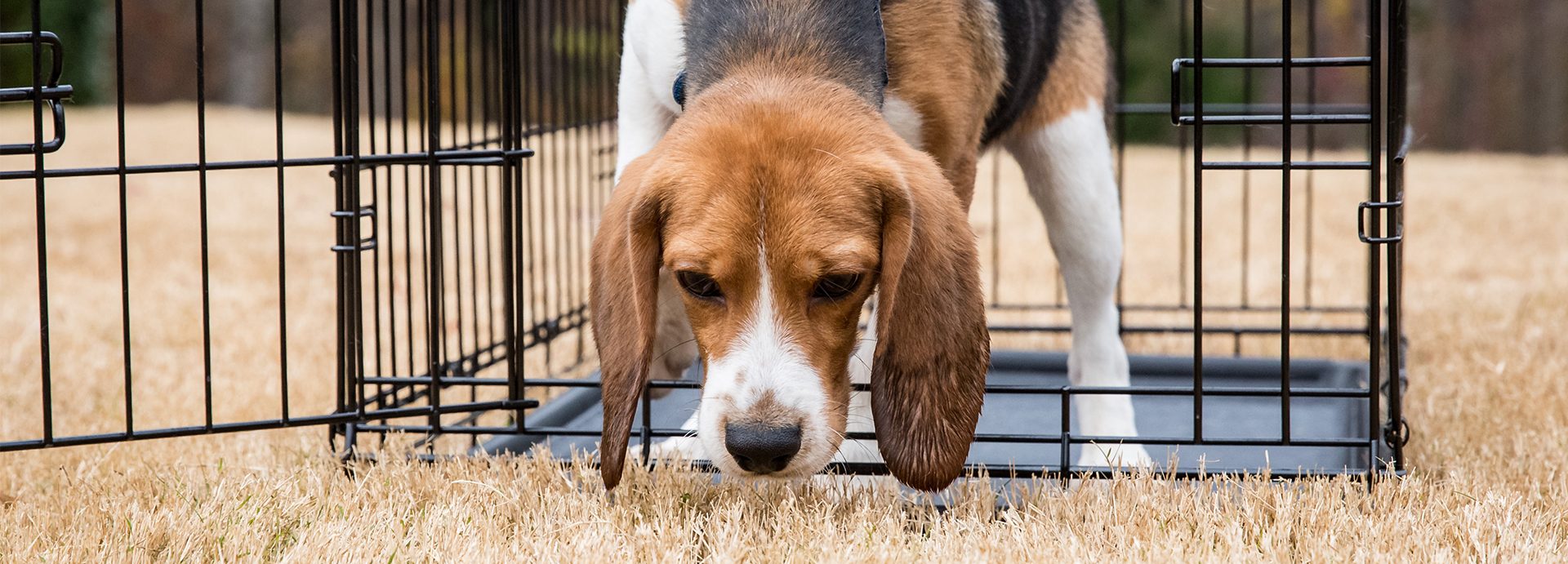Dogs used in research could have a better chance of eventually becoming pets under a bill winding through the Maryland General Assembly.
The state Senate already has approved the measure, which includes dogs and cats, though it is dubbed the Beagle Freedom Bill because the breed is the most common dog used in research. A hearing is slated for Tuesday in the House of Delegates and nearly 100 lawmakers already have signed on as co-sponsors.
The bill even won support from former Ravens wide receiver Torrey Smith, who is featured in a billboard holding a beagle.
“Hopefully we’ll get it voted on by the end of the week,” said Del. Maggie McIntosh, a Baltimore City Democrat and appropriations chair.
A similar bill failed for the past two years in the General Assembly when top research institutions, including Johns Hopkins Medicine and the University of Maryland School of Medicine, opposed it.
But Hopkins, a leading U.S. research institution, now supports the measure, amended to eliminate a state reporting requirement and allow researchers to continue their own adoption programs rather than work exclusively with rescue organizations.
“We actually have well-established processes in place to ensure the safe re-homing of our animals,” said Audrey Huang, a Hopkins spokeswoman. “We go to great lengths to customize placements based on the needs of each individual animal. In collaboration with faculty, staff, community partners, as well as reputable rescue organizations, our re-homing efforts have been incredibly successful.”
Last year, 49 dogs were used in research at Hopkins, up from 31 in 2016 but down from 493 in 2005. Huang said there has been a shift to using more mice and rabbits and hundreds of dogs have been adopted out.
Use of animals in science and medicine in general has been dropping. Cosmetics companies have moved away from animal testing. And nearly all U.S. medical schools stopped using animals to practice surgical procedures.
But animals remain in research, in large part because government regulators require it. The U.S. Food and Drug Administration requires that all new drugs be tested on animals before they are tested for safety and efficacy on humans.
Institutions are required to report use of research animals to the U.S. Department of Agriculture, which reports nearly 821,000 animals, including almost 61,000 dogs, were used in fiscal 2016. The tally does not include rodents. There were more than 55,000 animals used in Maryland, including 646 dogs.
Researchers have been investigating computer and cell models and other testing methods that may be able to produce better data with fewer practical and ethical concerns. Many drugs seem safe and effective in animals only to prove toxic or useless in humans.
In the meantime, animal rights groups have been pushing researchers to find homes for retired research animals. The California-based Beagle Freedom Project says six states now have adoption laws for research animals.
“Voluntary programs like post-research adoption are tenuous at best as policy often changes with personnel,” said a statement from Shannon Keith, the group’s president, and Matt Rossell, director of policy and advocacy. “The Beagle Freedom Bill will ensure that all dogs and cats that are deemed healthy candidates for adoption always get that chance going forward.”
House bill sponsor Del. Benjamin F. Kramer, a Montgomery County Democrat, has pledged to keep reintroducing the legislation to bring awareness to the animals’ plight. They should, if possible, “experience a little bit of kindness and love,” Kramer said last year about his bill.
“If it doesn’t pass this year, it’s going to be right back next year,” Kramer said. “With each passing year, the support for this has grown by leaps and bounds.”
Sen. Michael J. Hough, a Frederick County Republican who introduced the Senate version, said the measure should get a vote. He said there is no reason for lawmakers to sit on the bill for another year when it has such broad support.
“This common-sense bill simply says cats and dogs used in labs should be adopted out when it is safe to do so and testing is completed,” he said. “This bill will not stop animal testing, but simply allows humane treatment for animals, mainly beagles who have been tested upon.”
Original Article: Baltimore Sun

